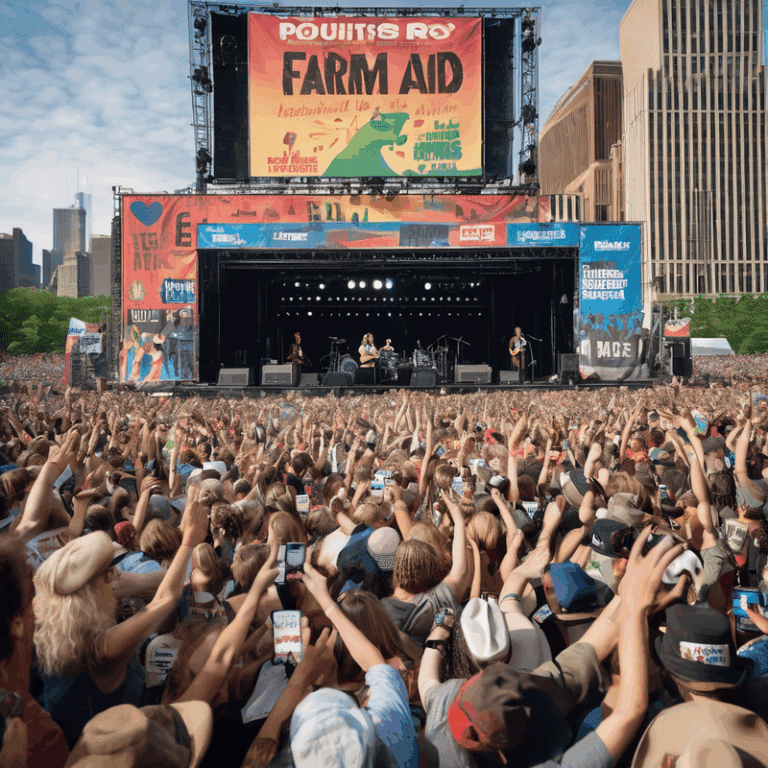
Divided Loyalties: Veterans’ Perspectives on the Army Parade for Trump’s Birthday
The unmistakable sound of marching boots and military salutes, the vibrant display of flags and uniforms — these are not just visual spectacles but rather poignant reminders of duty and sacrifice. Yet, as the Army prepares to host a grand parade in honor of President Donald Trump on June 14, a date that coincidentally marks the president’s birthday, the military community finds itself entangled in a web of divided opinions. The questions arise: Should the Army lend its prestige to such a celebration? What does this signify for veterans, many of whom wear their allegiance on their sleeves? 🇺🇸
Since the announcement of the parade, sentiments have ranged from fervent pride to stark disapproval among the nearly 19 million veterans across the United States. A survey conducted by the Veterans Network revealed that about 47% support the initiative, appreciating it as a tribute to both the presidency and military traditions, while 41% oppose it, citing concerns over politicizing the military. This paradox reflects the complex emotions that veterans experience in a politically charged environment.
Tradition vs. Political Play
At its core, the parade symbolizes more than just pomp and circumstance; it serves as a tribute to the men and women who have served the nation. Historically, such parades have been intrinsic to military culture, often commemorating significant events or honoring sacrifices made by those in uniform. For many veterans, participating—or even witnessing—such events can evoke a strong sense of camaraderie and nostalgia.
“Parades are a celebration of our military heritage,” says John Tatum, a veteran and former Army sergeant. “As long as it honors those who have served, I see no issue with it aligning with a political figure.” 🪖 However, not all share this view. Critics within the ranks argue that intertwining a military event with a sitting president’s birthday merges patriotism with partisanship, potentially undermining the military’s apolitical stance.
“The military should remain above politics,” states Linda Reyes, a retired Navy officer and activist. “Using our service to bolster a political figure does a disservice to the values we stand for.” 📜
The Cost of Celebration
The logistics behind a parade of this magnitude are considerable, involving thousands of active-duty personnel, extensive resources, and significant financial implications. Estimates suggest the event could cost upward of $20 million, an expenditure that has sparked debate. “In an era where veteran homelessness is still an unsettling reality, it’s alarming to see such lavish spending on a celebratory event,” remarks Dr. Michael Chen, a veteran affairs policy expert. 💵
Inside the Veterans’ Community: The Emotional Divide
For many veterans, the divide is not merely about the event itself but speaks to deeper issues of identity, recognition, and appreciation. For some, the parade could serve as a beacon of pride, while for others, it represents a potential alienation from a government they feel has neglected their needs.
David Morales, a Vietnam War veteran, exclaims, “I just want to be recognized for my service and sacrifices. If a birthday parade highlights veterans’ contributions, I’m all for it.” Yet, many veterans share a contrasting view, finding the association with Trump troubling given his controversial history with military affairs.
Historical Context: Parades and Politics
This isn’t the first time military events have stirred controversy. Veterans recall ceremonies celebrating various presidents and the tension that arises with each. From the Nixon administration through Obama’s tenure, military parades have served both as honorifics and political statements. Most recently, Trump’s own “Salute to America” on the Fourth of July in 2019 faced backlash for its overtly political gesture, prompting many to question the motives behind such events.
Finding Common Ground
While the impending parade showcases a fracture in the veterans’ community, it also amplifies the possibility for dialogue and a deeper understanding of differing perspectives. Grassroots organizations have sprung into action, seeking to unify veterans through discussions aimed at finding common ground on issues like mental health, veteran benefits, and community engagement. “If we can set aside our differences, we might just build a stronger community together,” suggests Amy McBride, the founder of Veterans United for Common Causes. 🤝
Conclusion: Moving Forward
As the nation approaches June 14, a day that intertwines military pride with a politically charged agenda, veterans continue to grapple with their feelings about the parade. Whether viewed as a celebration or a contentious political spectacle, the event serves as a touchstone for larger discussions about veteran identity, community, and the unwavering value of service. As echoes of the past resonate with millions and the future looms ahead, one thing remains certain: the voices of veterans will not be silenced amidst the fanfare. 🎖️



